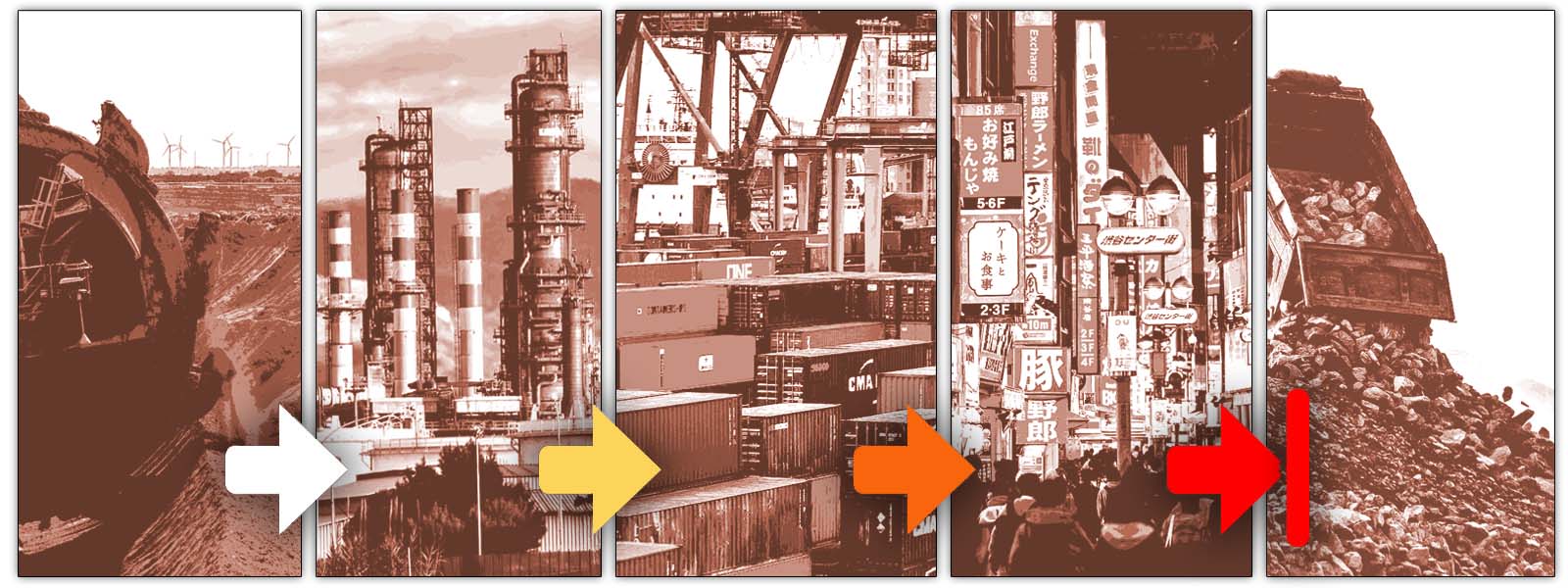

Since the Industrial Revolution, we’ve been extracting finite resources from the Earth, using them to make products, then disposing the waste materials and the used-up products into our air, water, and soil with no regard for the health of our planet and the people, plants and animals living here. There’s a better way to be.
"The linear economy, sometimes referred to as the take-make-waste economy, is a system where resources are extracted to make products that eventually end up as waste and are thrown away. Products and materials are generally not used to their full potential in a linear economy and, as the name suggests, always move in one direction – from raw material to waste. It is a polluting system that degrades natural systems and is the driver of global challenges, including climate change and biodiversity loss.
The industrial revolution laid the framework for this linear economy and it has brought many benefits. For the first time, goods were able to be mass produced. It seemed as though raw materials and energy were effectively infinite, and on the back of this economic transformation, industrialised countries became societies of abundance, the world population soared, and many millions were pulled out of poverty.
This global development was only possible by extracting finite resources and degrading natural capital to generate economic value. Over time we have learned to do this in more and more ways to create ever more advanced products. But the presiding model has not changed.
The negative effects of this approach, in the form of environmental damage and the loss of valuable materials, are clear. They are driven by the mismanagement of resources and land in industries across the economy, including agriculture, construction, and transport.
The way our economy functions is destroying the natural capital on which it depends. This is seen in the soils that are being degraded, the ocean that is being polluted, the biodiversity that is being lost, the freshwater that is drying up, and the forests that are being felled.
A transition to a circular economy will be crucial to allow us to thrive in the future."
Thanks to the Ellen MacArthur Foundation for this excellent explanation on the need to transition away from the linear economy and toward the circular economy.